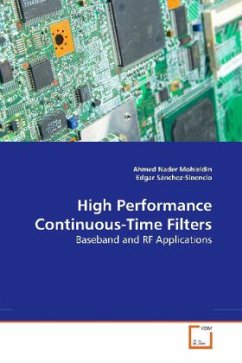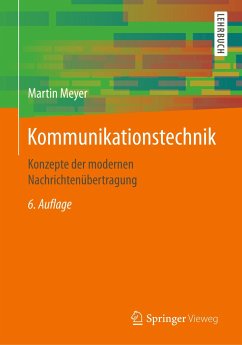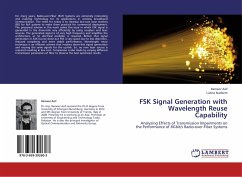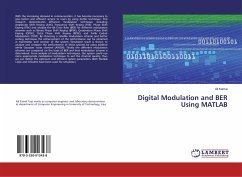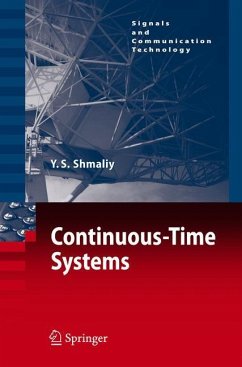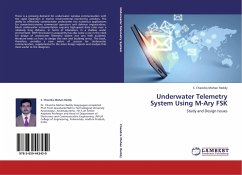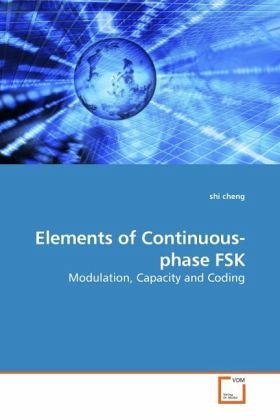
Elements of Continuous-phase FSK
Modulation, Capacity and Coding
Versandkostenfrei!
Versandfertig in 6-10 Tagen
44,99 €
inkl. MwSt.

PAYBACK Punkte
22 °P sammeln!
Continuous-phase frequency shift keying (CPFSK) is a type of FSK that maintains phase continuity from symbol to symbol. The bandwidth efficiency of a CPFSK waveform is characterized by its modulation index, number of frequency tones and channel coding rate. These parameters can be flexibly designed to meet different bandwidth and energy requirements in wireless communication systems. In this book, the general case of orthogonal CPFSK is first studied. Capacity, convergence behavior and asymptotic error rates of coded orthogonal modulation are analyzed. In addition to coherent detection, we con...
Continuous-phase frequency shift keying (CPFSK) is a type of FSK that maintains phase continuity from symbol to symbol. The bandwidth efficiency of a CPFSK waveform is characterized by its modulation index, number of frequency tones and channel coding rate. These parameters can be flexibly designed to meet different bandwidth and energy requirements in wireless communication systems. In this book, the general case of orthogonal CPFSK is first studied. Capacity, convergence behavior and asymptotic error rates of coded orthogonal modulation are analyzed. In addition to coherent detection, we consider noncoherent detection as well, which is one benefit of CPFSK. Then, the general case of nonorthogonal CPFSK is then studied. Capacity, spectral efficiency and capacity approaching code design are discussed for both coherent and noncoherent CPFSK. In addition, iterative channel estimation, demodulation and decoding for noncoherent CPFSK is considered. Finally, we apply noncoherent CPFSKto frequency hopping (FH) networks. Simulations show FH networks with CPFSK modulation and channel estimation can achieve robust performance against partial-band and multiple-access interference.



